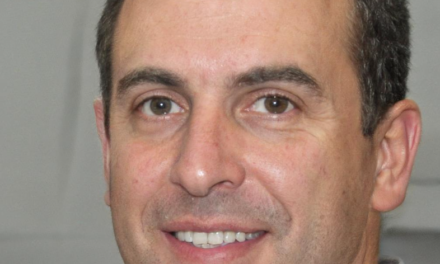Sunil Jagani from Malvern, Philadelphia believes that technology is fundamental to improving business operations. This conviction inspired him to establish AllianceTek in 2004, with the goal of helping companies streamline their processes and boost productivity. Prior to founding AllianceTek, Sunil held key roles in technology development at financial institutions such as Advanta and Bisys.
By meticulously analyzing the development process and fostering a strong team mentality, AllianceTek has grown into an ideal team, expanding into an international organization with over 100 employees and multiple offices in the United States and India.
Sunil and his team view businesses as ecosystems that only thrive when balanced. This philosophy guides their mission to unlock business potential by providing insights on how to align people, processes, and systems for growth. AllianceTek assists clients in reducing waste and enhancing profitability by identifying the optimal combinations of cutting-edge technology platforms tailored to each business’s specific needs.
With a Master’s degree in Software Engineering from Penn State and a business degree, Sunil possesses the unique ability to translate business needs into technology solutions and technical jargon into everyday language. He enjoys collaborating with a wide range of professionals, including CEOs, CTOs, business managers, entrepreneurs, and software vendors.
Meta has just announced the release of Llama 3.1, a pioneering open-source AI model that promises to redefine the landscape of artificial intelligence. Mark Zuckerberg, Meta’s CEO, emphasized the transformative potential of open-source AI for developers, Meta, and the global community. This launch positions Meta as the new leader in open-source AI, filling the gap left by OpenAI. Sunil Jagani, founder of AllianceTek, shares his insights on this monumental development and how it aligns with his company’s mission to leverage technology for business improvement.
Can you share your initial thoughts on Meta’s release of Llama 3.1?
Sunil Jagani: The release of Llama 3.1 is a monumental leap in the AI landscape. Meta’s commitment to open-source AI democratizes access to advanced tools, fostering innovation and collaboration. This aligns perfectly with AllianceTek’s mission to leverage cutting-edge technology to enhance business operations and drive growth.
How do you see the expanded context length of 128K in Llama 3.1 impacting businesses?
Sunil Jagani: The expanded context length of 128K is a game-changer for businesses. It allows the model to process and analyze larger datasets more efficiently, leading to deeper contextual understanding. This is particularly beneficial for applications like customer service automation and legal document analysis, where nuanced comprehension is crucial.
Llama 3.1 supports eight languages. How significant is this for international businesses?
Sunil Jagani: Supporting eight languages greatly enhances the usability and accessibility of Llama 3.1 for international businesses. It breaks down language barriers and fosters global collaboration. For a company like AllianceTek, which operates in both America and India, this multilingual capability is invaluable.
What are your thoughts on the introduction of Llama 3.1 405B with 405 billion parameters?
Sunil Jagani: The Llama 3.1 405B model sets a new benchmark for open-source AI. With 405 billion parameters, it offers capabilities previously available only in closed-source models. This provides developers with unprecedented flexibility and control, opening up new possibilities for customized applications and precise adjustments.
How can Llama 3.1’s synthetic data generation capabilities benefit businesses?
Sunil Jagani: Synthetic data generation is a powerful feature of Llama 3.1. It allows businesses to train models, conduct simulations, and test various scenarios without needing real-world data. This not only preserves data privacy but also accelerates innovation by enabling extensive experimentation.
What role does model distillation play in deploying AI on devices with limited computational resources?
Sunil Jagani: Model distillation is crucial for deploying AI on devices with limited computational resources. By creating smaller, more efficient models that retain the performance of their larger counterparts, businesses can leverage AI technology across a wider range of applications, even on less powerful devices.
Meta has introduced new developer tools like Llama Guard 3 and Prompt Guard. How do these tools enhance the security and usability of AI models?
Sunil Jagani: Llama Guard 3 and Prompt Guard are vital for ensuring the security and integrity of AI models. Llama Guard 3 offers robust protection against malicious attacks, while Prompt Guard helps prevent the generation of harmful or inappropriate content. These tools enhance the usability of AI models by making them safer and more reliable.
How does the Llama Stack API simplify third-party integration for developers?
Sunil Jagani: The Llama Stack API streamlines the integration process, making it easier for developers to incorporate Llama 3.1 into their applications. This simplification accelerates development and ensures seamless integration with existing systems and tools, which is a significant advantage for developers.
How does the release of Llama 3.1 align with AllianceTek’s mission and goals?
Sunil Jagani: Llama 3.1’s release aligns perfectly with AllianceTek’s mission to harness technology for business improvement. Its advanced features and open-source nature provide us with new tools to help our clients streamline operations, reduce waste, and enhance profitability through innovative tech solutions.
What future do you envision for open-source AI with Meta stepping into the role of the new leader?
Sunil Jagani: With Meta at the forefront, the future of open-source AI looks incredibly promising. Mark Zuckerberg’s commitment to openness and accessibility will drive innovation and collaboration across the AI community. This new era of growth and advancement will empower developers and researchers worldwide to push the boundaries of what’s possible with AI.




